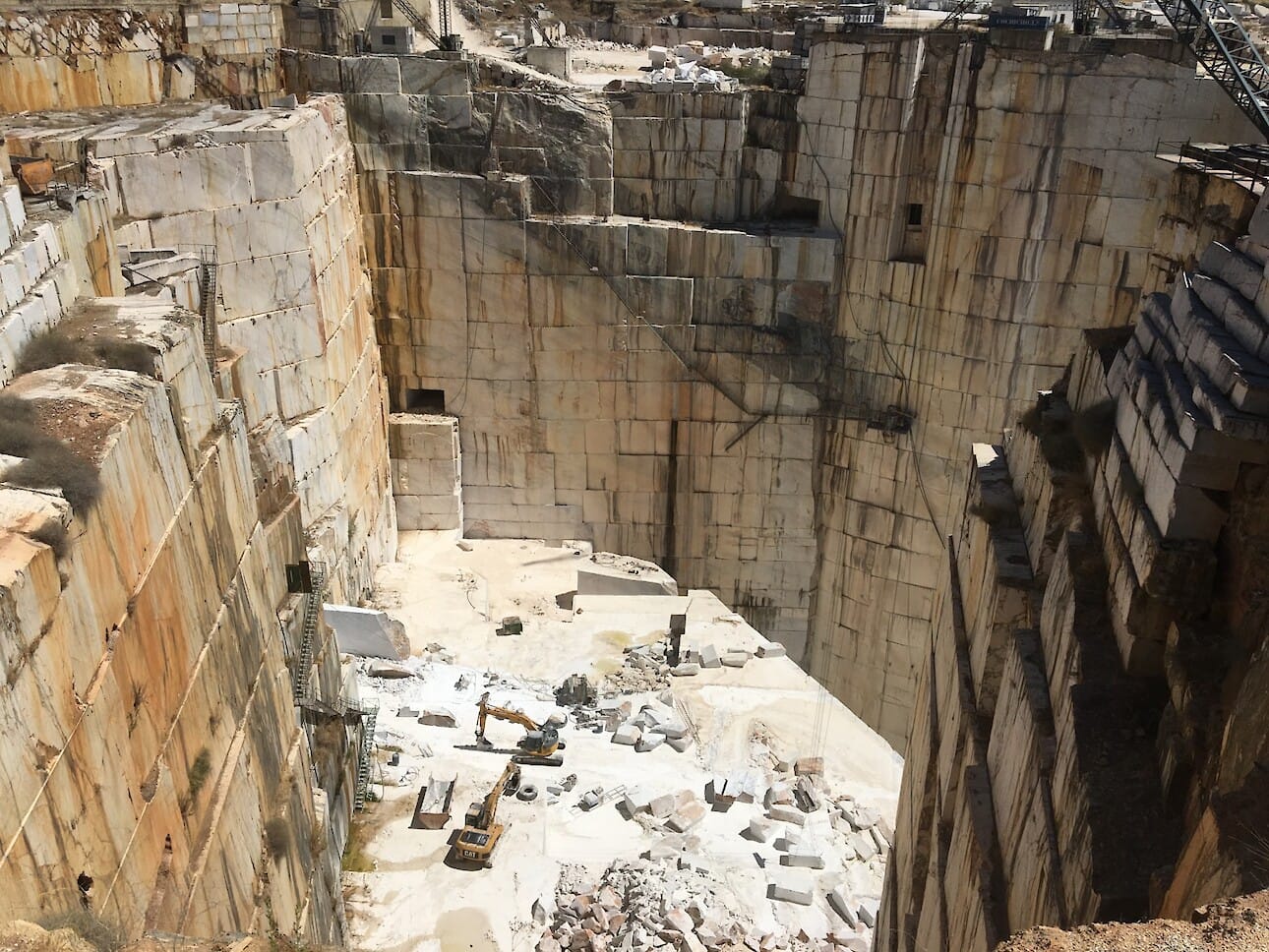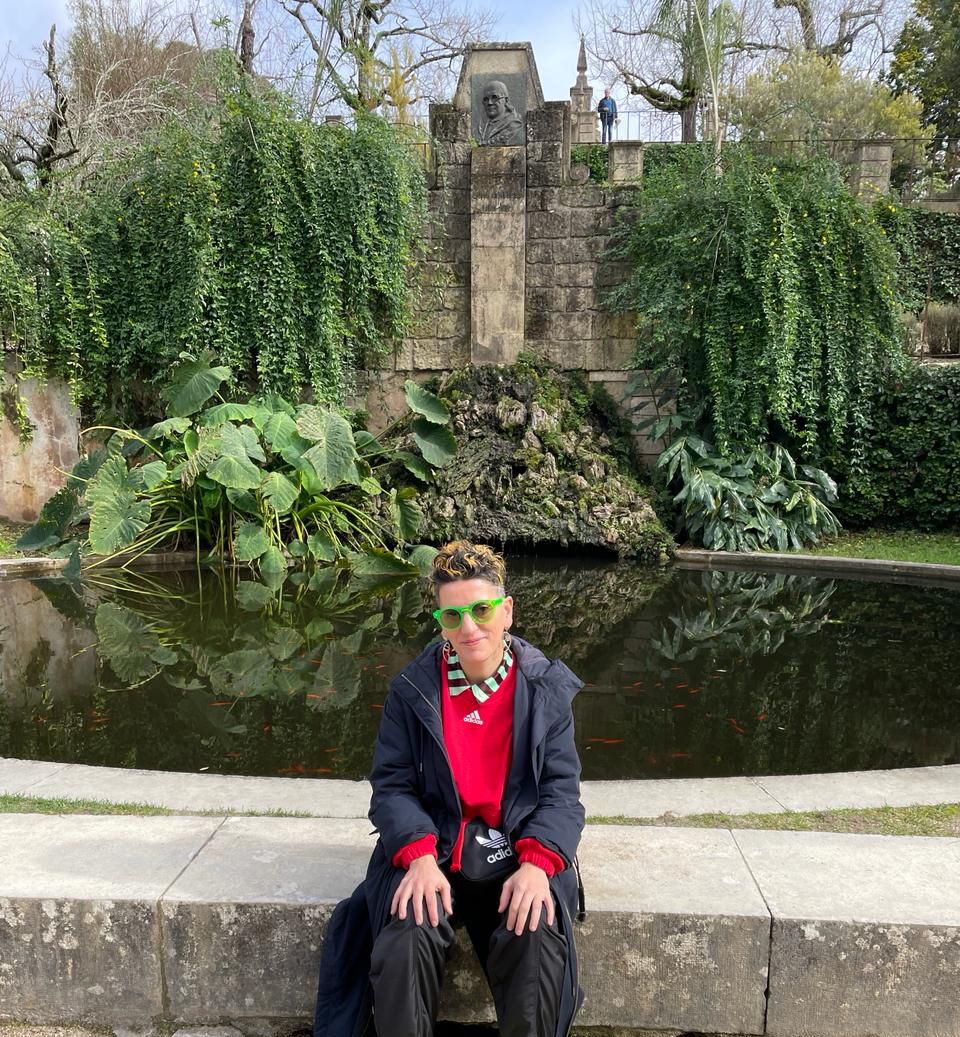Rita Natálio
Fóssil [Terra Batida]

- 12.10 — 23.10 2020
- Artists in Residence
- São Luiz Teatro Municipal - Sala Bernardo Sassetti
Rita Natálio is in residency at Estúdios Victor Córdon, as part of the Em Trânsito programme. Her performance Fóssil is part of the Terra Batida project, and will premiere at the Alkantara Festival in November.
Fóssil is a lecture-performance by Rita Natálio that follows Antropocenas (2017), in collaboration with João dos Santos Martins, and Geofagia (2018).
The figure of the zombie was central to our understanding of capitalism and the concept of biopolitics in the 20th century. The figure of the fossil — extracted from the Earth having accumulated time or history — invites us to think about the generalised crisis that many people call the Anthropocene. This performance makes a fossil of contemporary extractivism and reflects on how geology and processes that occur inside the Earth are inscribed in human history.
Fóssil is a book and a performance where language takes on different scales and exposes itself to sabotage.
Concept and text Rita Natálio Sound Rui Antunes Painting, menhir, and sculpture Hugo Canoilas Artistic assistance João dos Santos Martins Rehearsal spaces and arts residencies MDance, Espaço Alkantara, Estúdios Victor Cordon, PENHASCO With the support of Fundação Calouste Gulbenkian
Rita Natálio is an artist and researcher. Her work relates poetry, writing, and performance. She is a doctoral candidate in Artistic Studies at the New University of Lisbon (Portugal) and Anthropology at the University of São Paulo (Brazil). She researches the recent debate around the concept of the Anthropocene and its impact on the redefinition of disciplines and esthetics in the relationship between art, politics, and ecology. Lecture-performances include Antropocenas (2017) with João dos Santos Martins and Geofagia (2018). In 2019, she was part of the curatorial team for a film programme featuring Indigenous filmmakers from Brazil at the Gulbenkian Foundation in Lisbon. In 2020, she co-organised a seminar called “Repolitcisizng the Anthropocene” as part an international project, Anthropocene Campus Lisboa. She co-organises, with André e. Teodósio, the editorial imprint Ed. ______ focussing on performing arts and systems of power and protest.
Hugo Canoilas is a visual artist and recent winner of the Kapsch Art Prize (Austria). His work has been exhibited at Frankfurter Kunstverein, De Appel, Fundação Calouste Gulbenkian, Bienal de São Paulo, Kunsthalle Wien, Museu do Chiado, Mumok, and Museu de Serralves. He co-edited OEI#80-81: The zero alternative: Ernesto de Sousa and some other aesthetic operators in Portuguese art and poetry from the 1960s onwards with Cecilia Groenberg, Jonas (M) Magnusson, and Tobi Maier. He created the collective project A Gruta at Galeria Quadrado Azul in Lisbon and directs the Guimarães art space in Vienna with Nicola Pecoraro, and Christoph Meier.
João Prates Ruivo studied architecture in Lisbon and Rotterdam. He founded FORA, an architecture practice, with Raquel Oliveira and João Fagulha. He lectures at Syracuse University in London, and has taught previously at the University of Liverpool and Goldsmiths University, where he is currently a doctoral student. His project Soil Politics addresses the technical transformations of soil after World War II, particularly the role of reconnaissance missions in the territorial reconfiguration that occurred during the anti-colonial conflict in Angola. He currently researches situated practices of resistance in the context of ecological transformations resulting from the instensive farming practices in the Alqueva, Alentejo.
Pólen is a video platform dedicated to covering environmental conflicts in Portugal and actions of resistance: protests, actions, discussions, and solutions. There archive covers over 120 conflicts in agriculture, industry, mines, residues, energy, mega projects, and land governance.
Terra Batida is a constellation of people, practices and knowledge taking a stand against ecological violence and politics of abandonment. Local knowledge of socio-environmental conflicts combined with an active network create a context for resistance to extractive abuses and, also, for practices of care — speculation, fabulation, and building visions and reflections of the future for our weary, worn-out worlds.

Artist and researcher. His practice spans essayistic writing and performance, encompassing creation, teaching, research, and the curation of public programmes. He has organised a series of lecture-performances exploring the relationship between language and geology, presented internationally across art spaces, theatres, and academic contexts: Antropocenas (2017) with João dos Santos Martins, Geofagia (2018), and Fóssil (2020). One of his most recent works — Spillovers (2023) — proposes a fabulated, collective reinterpretation of Lesbian Peoples: Material for a...